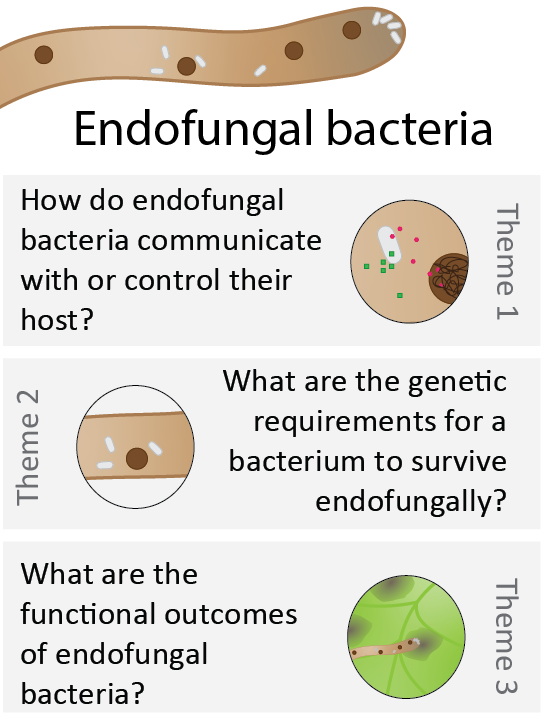Unlike plant- and animal-associated bacteria, fungi-associated bacteria remain largely unexplored, despite their presence and effect across microbiomes. Though evidence supports that most fungi can harbor bacterial symbionts, a limited number of endofungal bacteria (EFB) and host systems have been investigated beyond simply noting their existence. What functional studies do exist reveal that EFB-host interactions yield diverse outcomes such as alterations to fungal stress tolerance, secondary metabolite production, and reproduction.
The long-term goal of the Carter Lab is to create a model for the establishment, maintenance, and impact of EFB-host interactions. A framework would direct efforts into manipulating fungal biology and developing control strategies targeting the fungal host or symbiont. Thinking broadly, here are some themes for the laboratory guided by big picture questions.
- Effector biology and secretion systems: How do endofungal bacteria communicate with or control their host?
- Adaptation to an endofungal lifestyle: What are the genetic requirements for a bacterium to survive endofungally?
- Impact of endofungal bacteria on health: What are the functional outcomes of endofungal bacteria?
To answer these questions, the Carter Lab employs a diverse set of techniques to address the genetic, biochemical, and molecular aspects of each theme. Exploring the mechanisms underlying EFB-host interactions will add context to our knowledge of the evolutionary outcomes of bacteria-eukaryote interactions. We will gain new, fundamental information about fungal biology and the mechanisms underlying symbiosis. This knowledge will be foundational for future control and manipulation of fungi in agriculture, health, and the environment.
